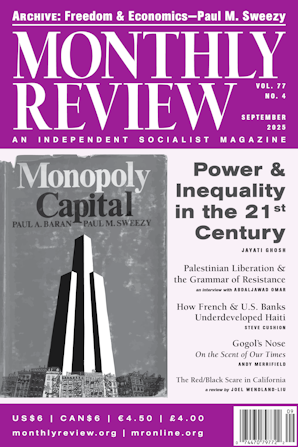Also in this issue
- Black Scare in California: Blacks, Reds, and Revolution in the 1960s and '70s
- Freedom and Economics
- Gogol's Nose: On the Scent of Our Times
- Neocolonialism through Debt: How French and U.S. Banks Underdeveloped Haiti
- September 2025 (Volume 77, Number 4)
- Power, Control, Inequality, and Democracy in the Twenty-First Century

